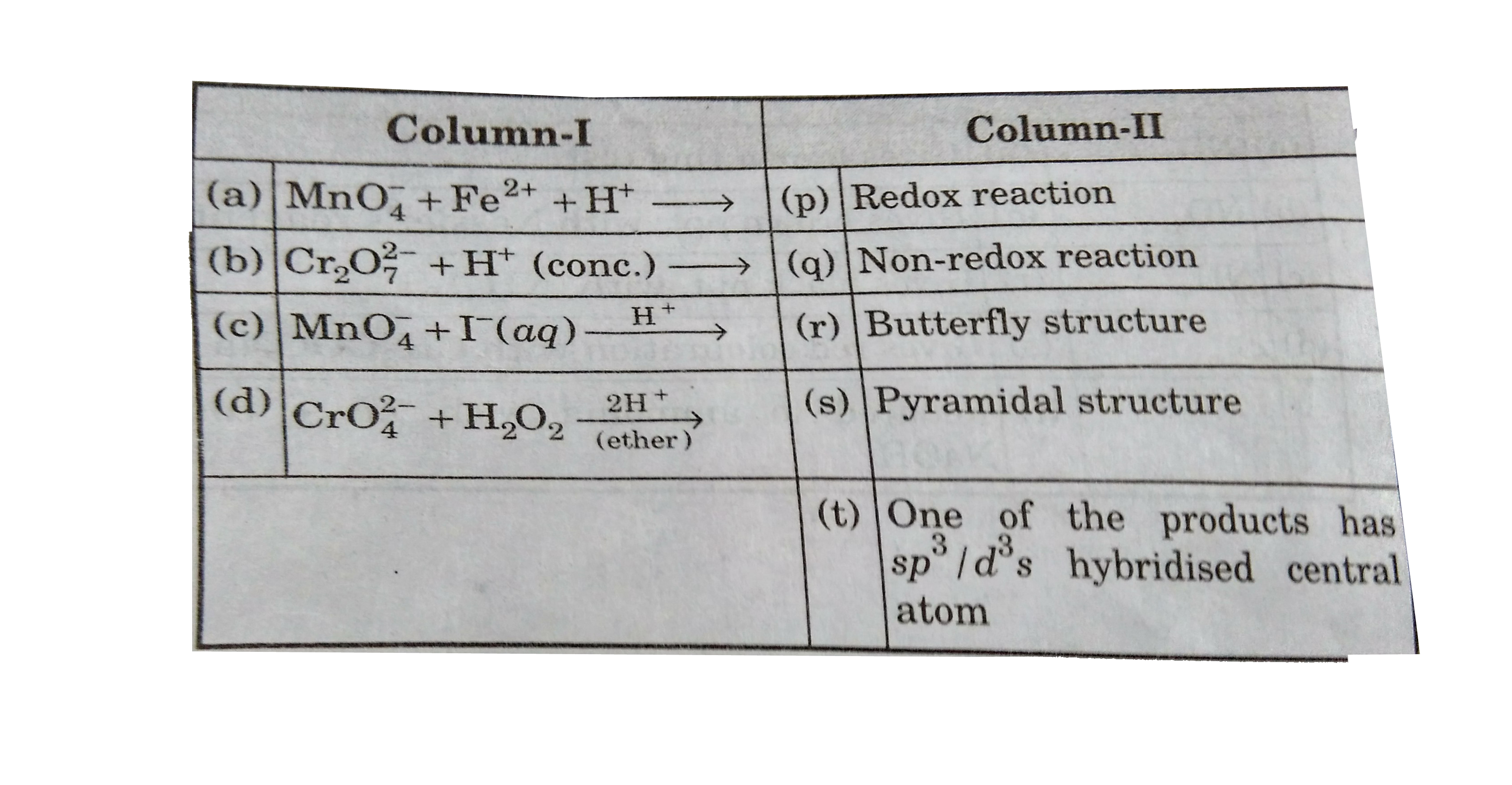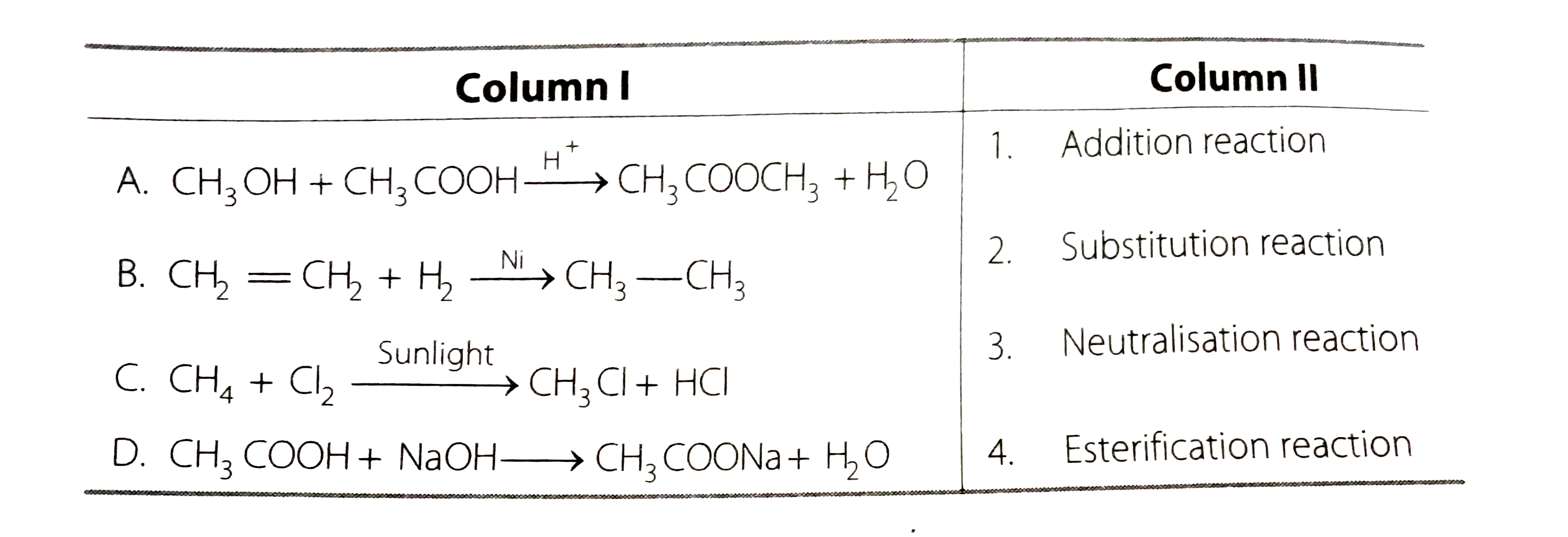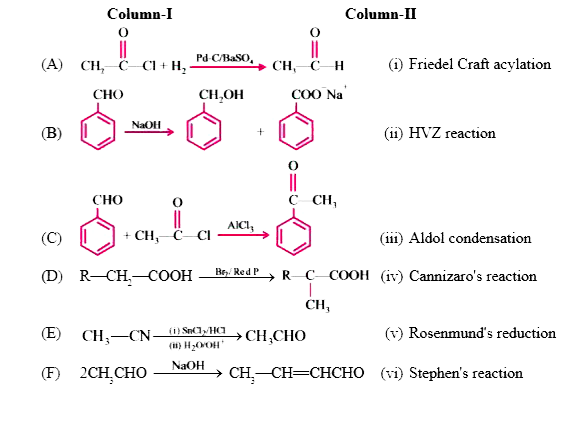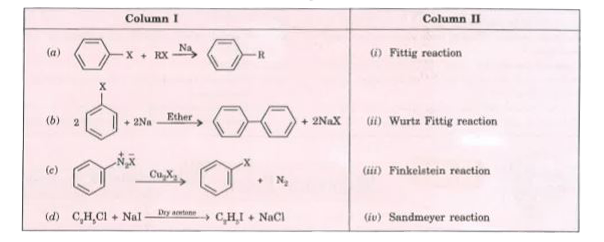Match the reactions given in Column - I with the types of reactions given in Column - II.
 Solution in Gujrati
Solution in Gujrati
(i - b), (ii - d), (iii - e), (iv - a), (v -c)
Topper's Solved these Questions
- HALOALKANES AND HALOARENESBOOK - KUMAR PRAKASHANCHAPTER - HALOALKANES AND HALOARENESEXERCISE - SECTION - D NCERT EXEMPLAR SOLUTION (Assertion and Reason Type)
10 Videos
- HALOALKANES AND HALOARENESBOOK - KUMAR PRAKASHANCHAPTER - HALOALKANES AND HALOARENESEXERCISE - SECTION - D NCERT EXEMPLAR SOLUTION (Long Answer Type Questions)
3 Videos
- HALOALKANES AND HALOARENESBOOK - KUMAR PRAKASHANCHAPTER - HALOALKANES AND HALOARENESEXERCISE - SECTION - D NCERT EXEMPLAR SOLUTION (Short Answer Type Questions)
35 Videos
- GENERAL PRINCIPLES AND PROCESSES OF ISOLATION OF ELEMENTSBOOK - KUMAR PRAKASHANCHAPTER - GENERAL PRINCIPLES AND PROCESSES OF ISOLATION OF ELEMENTSEXERCISE - SECTION - E (MCQs ASKED IN GUJET/BOARD EXAMS)
46 Videos
- POLYMERSBOOK - KUMAR PRAKASHANCHAPTER - POLYMERSEXERCISE - SECTION - E (MCQs asked in Board Exams)
51 Videos
Similar Questions
Assertion (A) : Phosphorus chlorides (tri and penta) are preferred over thionyl chloride for the preparation of alkyl chlorides from alcohols.
Reason (R ) : Phosphorus chlorides give pure alkyl halides.
View SolutionSome alkyl halides undergo substitution whereas some undergo elimination reaction on treatment with bases. Discuss the structural features of alkyl halides with the help of examples which are responsible for this difference.
View SolutionAryl chloridesand bromides can be easily prepared by electrophilic substitution of arenes with chlorine and bromine respectively in the presence of Lewis acid catalysts. But why does preparation of aryl iodides requires presence of an oxidizing agent ?
View SolutionDuring electrolysis of aqueous solution of Na2SO4 using graphite electrode .........
View SolutionWhich polymer is used in preparation of capsules ?
View SolutionMatch the reactions given in column-I with nature of reactions/type of the products given in column-II

View SolutionMatch the reactions given in Column I with the reaction types in Column II.
View SolutionMatch the reactions given in Column I with the type of reactions given in Column II
View SolutionMatch the reactions given in Column I with the statements given in Column II

View SolutionMatch the reactions given in Column I with the statements given in Column II

View SolutionMatch the reactions given in Column I with the names given in Column II.

View SolutionMatch the reactions given in column I with the types of reactions given in column II.
 .
.
View SolutionMatch the reactions given in Column I with the suitable reagents given in Column II.
 .
.
View SolutionMatch the reactions given in Column I with the types of reactions given in Column II.
View SolutionMatch the reactions given in Column I with the names given in Column II.

View Solution
